SUMMARY
This is AI generated summarization, which may have errors. For context, always refer to the full article.
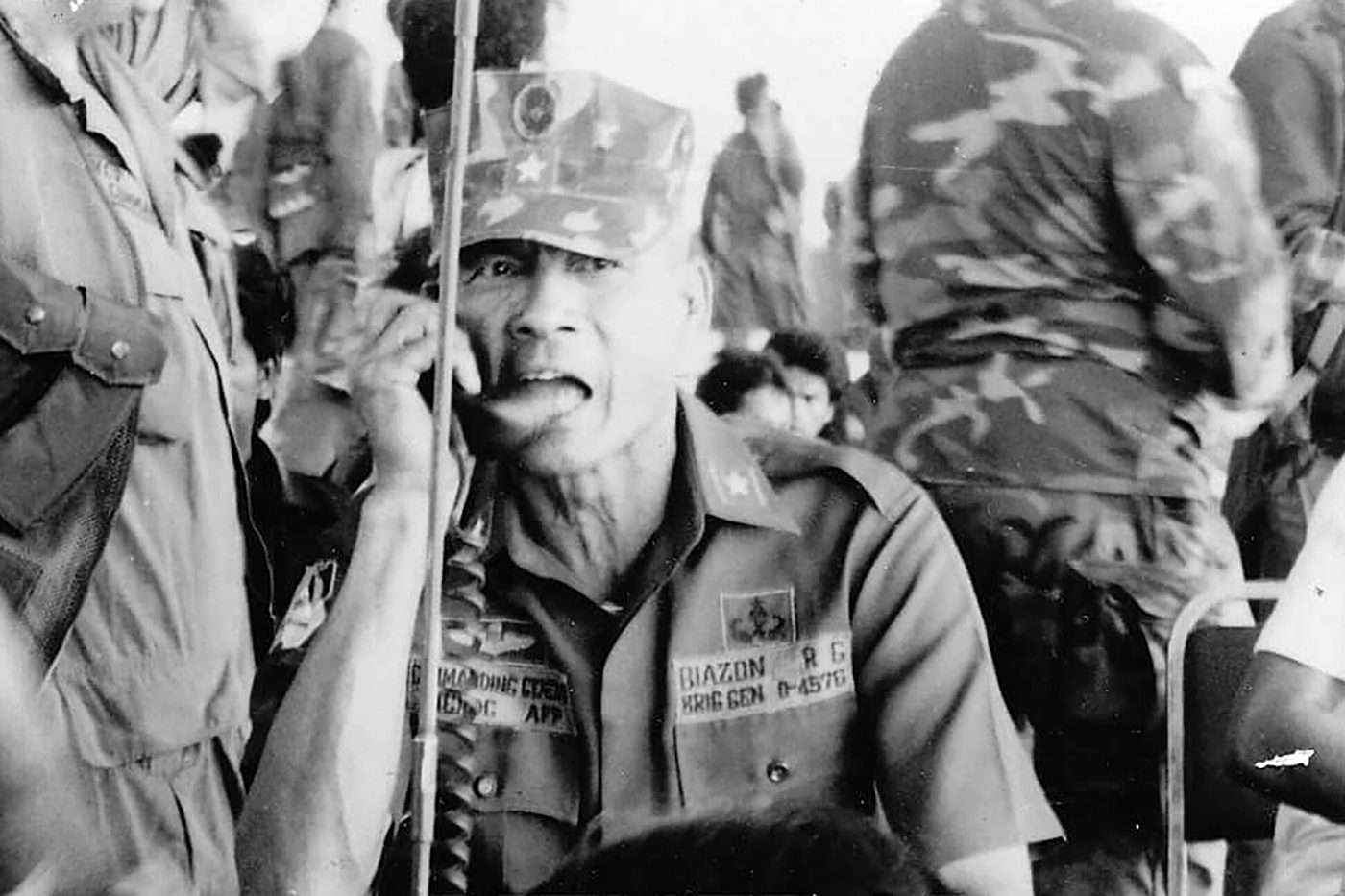
MANILA, Philippines – In combat fatigues and a bull cap, he stood tall among battle-ready troops assembled at a military grandstand as he barked orders through a megaphone, a gaggle of anxious reporters by his side.
It was the wee hours of December 1, 1989. Renegade soldiers had attacked the Army camp and the Air Force headquarters in Fort Bonifacio, and one Marine general was tasked to secure the most important camp of all, Camp Aguinaldo, general headquarters of the Armed Forces of the Philippines (AFP) in Quezon City.
Then-brigadier general Rodolfo “Pong” Biazon was the commander of the AFP’s National Capital Region Defense Command (NCRDC), which carried the burden of keeping Metro Manila safe from destabilizers who, by December 1989, had already mounted at least five coup attempts – all foiled – against the government that replaced the Marcos dictatorship. (Editor’s note: We previously said he was a colonel; he was already a one-star general. Our apologies.)
That December night was different, though. Its deathly air felt like a storm that was moving too fast, too soon.
Thousands of Marines – Biazon’s own men – had joined the rebel side, RAM-SFP (Rebolusyonaryong Alyansang Makabayan-Soldiers of the Filipino People). He had to scramble for troops from other units to fortify the general headquarters.
But as always, the 6-footer Biazon looked ready. His eyes raged, yet his baritone voice soothed our frayed nerves.
Biazon turned to us reporters, the only civilians allowed at the Camp Aguinaldo grandstand that he had converted into a command post. This is going to be the longest night of your lives, he said. It would last nine long days.
Rebel planes soared above us one night and dropped bombs while heavily-armed mutineers started breaching camp defense, forcing Biazon to bring us to the press office below the grandstand for cover. Boom, boom, boom! We ducked under a table with him.
There is no moment like it, etched in my head like an implant that three decades of distance could not melt. It would be our – my – lasting memory with him.
Pro-government troops, backed by US jets, eventually repulsed the rebels in the bloody coup nearly 34 years ago that came so close to toppling the first post-EDSA government. Biazon would become a household name after that. By 1991, he was named Cory Aquino’s third AFP chief of staff (after the late Fidel V. Ramos and then-General Renato de Villa), even if he only had barely three months to serve until his mandatory retirement. To this day, he holds the record of being the only officer from the Philippine Navy (the Philippine Marine Corps is under the Navy) to become chief of staff.
By 1992, when Ramos got elected president, Biazon also became the first Philippine Military Academy (PMA) graduate to win a Senate seat. He garnered nearly five million votes.
Indeed, the PMA Class 1961 member who ranked 48th among the 54 graduates had outdone himself.
Standing his ground
Biazon belonged to the pre-Facebook generation of soldiers who knew the value of media in any war, used it to the hilt, but did so professionally and skillfully.

The Marine officer earned his stripes in Davao in the dying years of the Marcos regime, an area that communist guerrillas had turned into a laboratory for their rule. The military at the time was so loathed in Mindanao, but Biazon was bent on winning hearts and minds. He visited communist strongholds, asked his men to assist communities, and brought journalists with him in helicopter rides to the remotest villages.
A Christian Science Monitor article on Davao during those times wrote about Biazon’s “sophisticated approach” to the insurgency. “The colonel emphasizes outreach over combat. He visits schools, accompanied by a few aides (other commanders have at least several well-armed security men in their wake). And, when one of his men was accused of abusive behavior, Biazon offered to take a leave of absence while an impartial investigation was being conducted… This was a precedent that would not please some of his peers, who are regularly accused of abuse, particularly summary execution of suspects.”
When then-president Ferdinand Marcos called for a snap presidential election for February 1986, Biazon resisted attempts by both sides to use the Marines in their favor and ordered them to stay non-partisan. Opposition presidential candidate Cory Aquino won a decisive victory in Davao – because the Marines under Biazon refused to be used by Marcos.
Media darling
As National Capital Region commander and AFP chief under Cory Aquino, Biazon liberalized media access to the military. One could knock on his door for a short interview as long as he had the time for it, which was often at lunch. He would usually have only one dish, and I remember a few lunch interviews with him over his favorite, monggo (bean soup).
Biazon, after all, was a man of simple needs and humble beginnings, having lost his father at a young age.
I know the cause of rebellion, he would say, because I lived it.
This living on life’s edges and in swamps is captured so well by writer Eric Ramos’ biography of the man titled Rodolfo Biazon: Soldier. Solon. Statesman. After his father died a day before he turned 8, Biazon helped his mother raise the family by peddling wares in push carts, washing laundry for families, and working as a septic tank excavator. “We used pails to scoop out the sewage. It was all done manually,” Biazon, then called by his family and friends as “Boy Tangkad,” recalled in the book.
Biazon’s mother was from Batac, Ilocos Norte, like the late dictator Ferdinand Marcos. He was born there but grew up in Cavite, where his father was from, and the slums of Pasay City.
The book recalls how Biazon was too preoccupied with making a living that he grew up bereft of ambition. He flunked his first entrance exams at the PMA. When he finally made it as a plebe, he was already 22 years old. At the academy, he was turned back a year for failing in math subjects.
But once deployed to the Marines after graduating in 1961, and blessed with the lessons from those hard years, the bashful Biazon fought with muscle and heart that became a rarity in the dark years of the Marcos dictatorship.
Post-Marcos, when the environment allowed soldiers to speak their minds, the chain-smoking general showed how he loved to talk. And he talked big: democracy, governance, politics, leadership, values. Behind his back, some officers envied his fame, saying he merely talked himself through it. From our countless conversations, I’d come to know him as a man of depth, substance, courage. And a lot of heart.
He knew that the so-called enemies of the state – communists and military rebels – had mastered propaganda, and he fought them tooth and nail on this. But he dished out only what he knew to be true, choosing to play mind games with reporters and challenging them to not “romanticize” rebellion. He exuded command presence, he spoke his mind, he reveled in anecdotes from his Davao stint, he often broke into a smile that showed his nicotine-tainted teeth and wrinkled his face.
This, I believe, is a legacy he leaves behind: Biazon the soldier found the time – to tell a story, to explain, to ask, to listen, to challenge. Which cannot be said of a number of today’s generation of military propagandists who don’t only spread hate but bigotry, no-no to Biazon’s old, dying breed.
Rest in peace, sir. Salute! – Rappler.com
Add a comment
How does this make you feel?
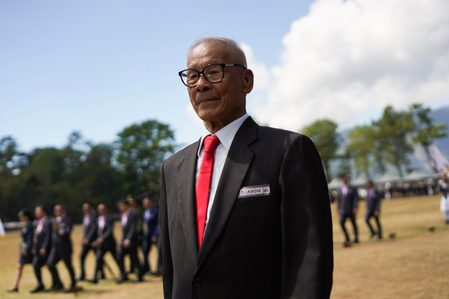
![[PODCAST] Seat of Power: Rodolfo Biazon on what the President should keep to himself](https://www.rappler.com/tachyon/2021/05/seat-of-power-podcast-sq-2.jpg?fit=449%2C449)





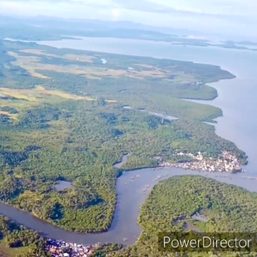
![[OPINION] Is Marcos in full command of defense, military establishments?](https://www.rappler.com/tachyon/2023/02/tl-marcos-centino-incognito.jpg?resize=257%2C257&crop_strategy=attention)
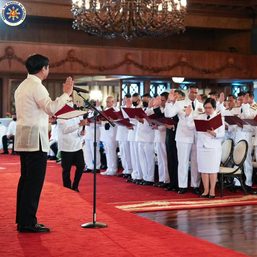
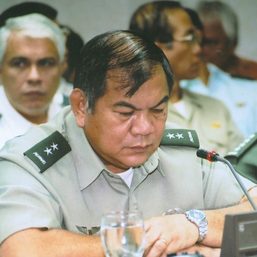



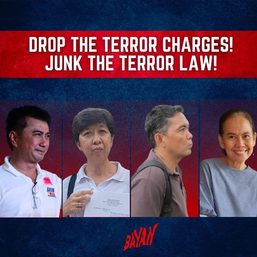
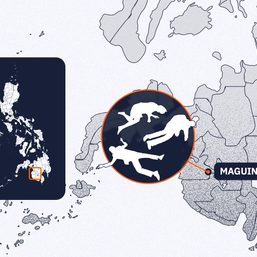
There are no comments yet. Add your comment to start the conversation.